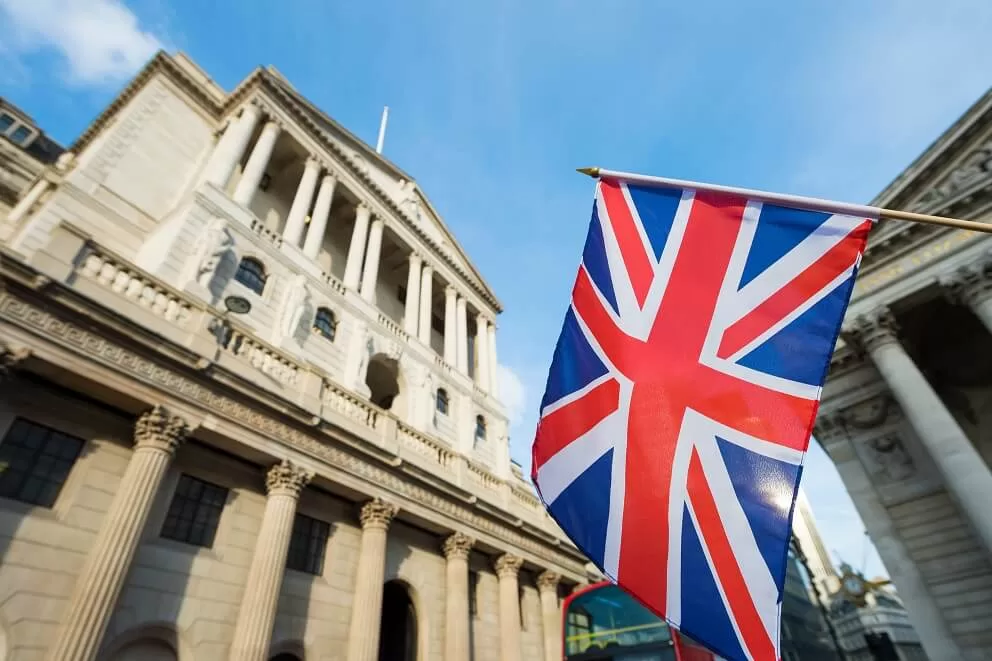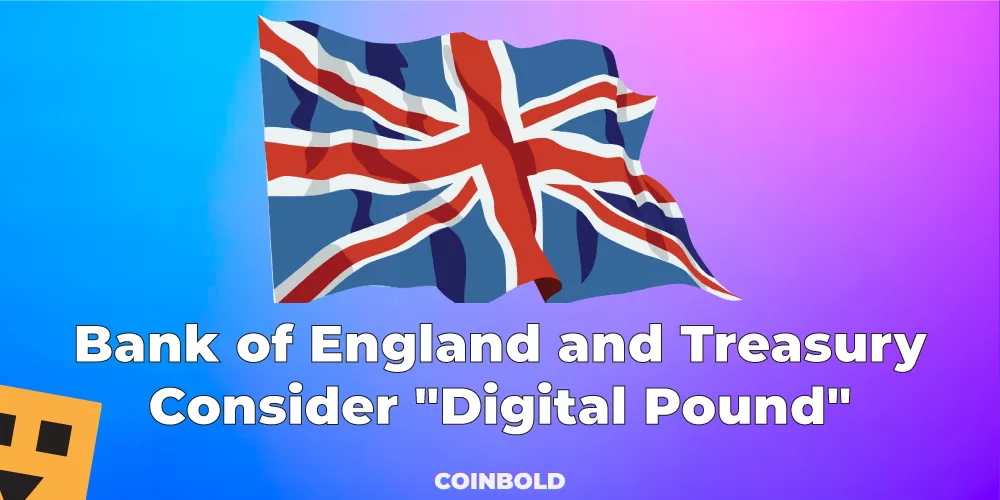According to recent reports, the Bank of England and the government of the United Kingdom will today officially launch a survey for the so-called “digital pound.”
According to the PA Media Group, which was cited by Yahoo News, there are plans in place for the nation to establish a digital pound that will be supported by the state “later on in this decade.” It was said that the Bank of England and the Treasury will collaborate on the development of a plan to “possibly launch a new central bank currency” (CBDC), implying that this is now just a theoretical possibility.
It will be some time before a decision is reached about the distribution of the digital pound; now, it is expected that this will be the case. Despite this, the process has started.
The consultation will take place over the course of about four months, and the subsequent design process won’t begin at least until 2025. After that, a conclusive decision will be taken about this item.
If they do make the decision to go forward with it, the launch will need a big expenditure, and it will take place somewhere in the second part of the decade, coming closer and closer to the year 2030.

According to the study, the two institutions reached a consensus that the CBDC is “likely to be required in the future.” This was due to the fact that there are ongoing changes in the manner in which people use cash and cards. In addition to this, both private persons and commercial enterprises are increasingly adopting the use of cryptocurrencies and stablecoins.
According to a remark that was attributed to Andrew Bailey, the Governor of the Bank of England,
“The argument in favor of the introduction of a digital version of the pound in the future is strengthening as the environment around us and the manner in which we make purchases become more digitized. A new method of payment, assistance for enterprises, continued faith in the monetary system, and improved protection of financial stability would all be provided by a digital pound. Nevertheless, there are a lot of ramifications that our technical work will need to carefully explore in light of the situation. This consultation, together with the additional work that will now be done by the Bank, will serve as the basis for what might be a major choice for the nation about the manner in which we handle monetary matters.”
Having said that, the Treasury Department reaffirmed once again that the proposed CBDC would not be a cryptocurrency asset. It would be issued and kept by the Bank of England, and in order to ease spending, middlemen such as consumer banks would also be engaged.
Additionally, the bank is likely to place limits on the total quantity of cash that a person or company may retain at any given time.
“Yes” in favor of the digital pound
It would seem that many of the country’s leaders are on board with the idea of using a digital version of the pound. Back in October, Prime Minister Rishi Sunak’s Minister of Financial Services Andrew Griffith issued a stern warning against delaying the issuance of CBDCs, arguing that doing so could be detrimental to the economy of the country.
In addition to this, it was reported that the Chancellor, Jeremy Hunt, stated that,
“Even though cash is here to stay, a digital pound that is issued and backed by the Bank of England might be a new way to pay that is reliable, easily accessible, and simple to use. Because of this, our primary objective is to determine what can be done, while at the same time making certain that we maintain monetary security.”
Jon Cunliffe, who is the Deputy Governor of the Bank of England for Financial Stability, is also on record as being in favor of the Bank of England issuing a CBDC. In a report that was prepared for the G20 the previous year, he stated that “CBDCs offer the opportunity to start with a ‘clean slate,'” adding that they open up an opportunity to “avoid many of the challenges in today’s legacy technologies and processes” related to cross-border payments. This opportunity was discussed in relation to cross-border payments.
The Bank of England has stated that it will conduct additional research on the CBDC in addition to development work, and it will invite members of the public to participate in the process of consultation.
The Digital Pound Foundation was established as an independent forum back in October 2021 with the intention of supporting the implementation of a digital pound and digital money ecosystem that was well designed. According to what was stated, the foundation had the intention of working toward the establishment of an ecosystem that encompasses both CBDCs and privately-issued forms of digital money. The original members of the group included projects with names like Avalanche and Ripple, as well as Quant and other names.
In the meantime, earlier this month, the Treasury was rumored to be planning to deliver “ambitious plans to robustly regulate cryptoasset activities” on par with traditional finance. However, the Treasury also stated that it would temporarily step away from the plan to apply stock-like standards to promotions of cryptocurrencies.
Additionally, it was reported the previous month that the National Crime Agency of the United Kingdom had begun the process of hiring law enforcement agents to investigate crypto crimes. According to a job advertisement that was published on the official website of the United Kingdom government, “The NCCU Crypto Cell will be dedicated to a proactive cryptocurrency remit with the right tools and capabilities to target UK-based subjects along with supporting colleagues with specialist advice and guidance.”
Compiled by Coinbold



